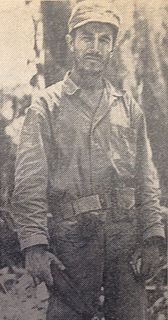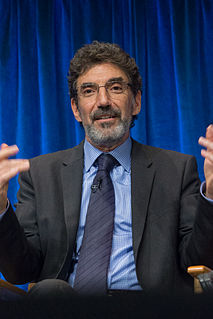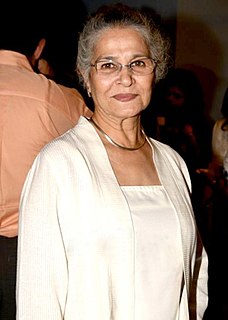A Quote by William Shakespeare
. . . nothing in his life Became him like the leaving it; he died As one that had been studied in his death To throw away the dearest thing he owed, As 'twere a careless trifle.
Related Quotes
In one horrible moment the last piece of the prophecy became clear. So bid him take care, bid him look where he leaps, As life may be death and death life again reaps. He had to leap, and by his death, the others would live. That was it. That was what Sandwich had been trying to say all along, and by now he believed in Sandwich. He put on a final burst of speed, just like the coach taught him in track. He gave everything he had. In the last few steps before the canyon he felt a sharp pain in the back of his leg, and then the ground gave way under his feet. Gregor the Overlander leaped.
Atten. Pray of what disease did Mr. Badman die, for now I perceive we are come up to his death? Wise. I cannot so properly say that he died of one disease, for there were many that had consented, and laid their heads together to bring him to his end. He was dropsical, he was consumptive, he was surfeited, was gouty, and, as some say, he had a tang of the pox in his bowels. Yet the captain of all these men of death that came against him to take him away, was the consumption, for it was that that brought him down to the grave.
His face set in grim determination, Richard slogged ahead, his fingers reaching up to touch the tooth under his shirt. Loneliness, deeper than he had never known, sagged his shoulders. All his friends were lost to him. He knew now that his life was not his own. It belonged to his duty, to his task. He was the Seeker. Nothing more. Nothing less. Not his own man, but a pawn to be used by others. A tool, same as his sword, to help others, that they might have the life he had only glimpsed for a twinkling. He was no different from the dark things in the boundary. A bringer of death.
I wrote this [Most Kings] before MJ died, and his death only proves my point: When he was alive, the King of Pop, people were tireless in taking him down, accepting as truth every accusation people made against him, assuming the worst until they drove him away. When he died, suddenly he was beloved again - people realized that the charges against him might really have been bogus, and that the skin lightening was really caused by a disease, and that his weirdness was part of his artistry. But when he was alive and on top, they couldn't wait to bring him down.
His impression was that he had been imprisoned in a shelter deep down in the underworld of his personality, listening and biding his time while insanity rushed like spring flood through the upper layer of his soul, roaring and crashing, leaving terrible destruction in its wake, a deserted, ravaged country. No, he hadn't been crazy, but something inside him had been crazy.
He had thrown himself away, he had lost interest in everything, and life, falling in with his feelings, had demanded nothing of him. He had lived as an outsider, an idler and onlooker, well liked in his young manhood, alone in his illness and advancing years. Seized with weariness, he sat down on the wall, and the river murmured darkly in his thoughts.
The capitalists owned everything in the world, and everyone else was their slave. They owned all the land, all the houses, all the factories, and all the money. If anyone disobeyed them they could throw him into prison, or they could take his job away and starve him to death. When any ordinary person spoke to a capitalist he had to cringe and bow to him, and take off his cap and address him as 'Sir'
I'm thinking of writing a children's story about a leaf on a tree who arrogantly insists he's a self-made, independent leaf. Then one day a fierce wind blows him off his branch and to the ground below. As his life slowly ebbs away, he looks up at the magnificent old tree that had been his home and realizes that he had never been on his own. His entire life he had been part of something bigger and more beautiful than anything he could have imagined. In a blinding flash, he awakens from the delusion of self. Then an arrogant, self-centered kid rakes him up and bags him.
Atul had a child from his first marriage but lost him when he was just 16 years old. His wife died 7-8 years later. He's really had a tough life. Probably these experiences have made him a more sensitive, caring and loving person... Had we been 20 years younger, we definitely would have had children.
Her image had passed into his soul for ever and no word had broken the holy silence of his ecstasy. Her eyes had called him and his soul had leaped at the call. To live, to err, to fall, to triumph, to recreate life out of life! A wild angel had appeared to him, the angel of mortal youth and beauty, an envoy from the fair courts of life, to throw open before him in an instant of ecstasy the gates of all the ways of error and glory. On and on and on and on!
The concentration camps, by making death itself anonymous (making it impossible to find out whether a prisoner is dead or alive), robbed death of its meaning as the end of a fulfilled life. In a sense they took away the individual’s own death, proving that henceforth nothing belonged to him and he belonged to no one. His death merely set a seal on the fact that he had never existed.






































